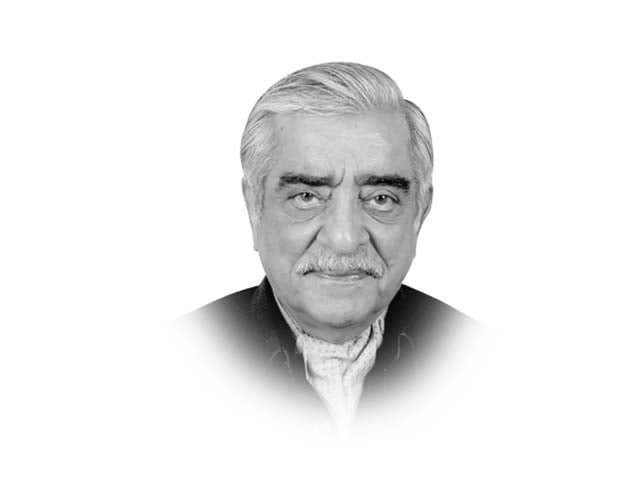The forthcoming Afghan elections
hose who have influence with the Taliban must persuade them to allow the elections to proceed unhindered.

The writer was foreign secretary from 1994-97 and also served as Pakistan’s ambassador to Iran (1992-94) and the US (1990-91)
Of the three transitions — economic, security and political — the political, we are told, is the most important since this will determine whether or not the new administration will sign the Bilateral Security Agreement with the Americans and how the reconciliation with the “armed opposition” will or will not proceed.
This process is not going to be helped by the other two transitions. Official Afghan figures put economic growth during the last year at three per cent after almost double-digit growth in past years. Real estate prices have collapsed. Construction, transport and other service sectors have experienced sharp declines. Mineral wealth exploitation remains a distant dream with setbacks being provided by the Chinese decision to renegotiate the agreement they had reached on the Aynak copper mine and Indian consortium, putting on hold plans to exploit the Hajigak iron ore deposits. The outflow of economic refugees, primarily to Pakistan, has increased dramatically. Rich Afghans are taking money out. The grim joke told in Kabul is that every decline in real estate values in the city triggers a comparable increase in the value of plots in Peshawar’s Hayatabad.
Much has been made of the fact that the Afghan National Security Forces (ANSF), now responsible for security in 97 per cent of Afghanistan, yielded no ground to the Taliban. True, but the cost has been high, with ANSF casualties being much higher than those suffered by Nato and Afghan forces combined in past years. The ANSF, in its operations, continued to have air and intelligence support from the foreign forces. This will disappear by the end of 2014 as will a large part of the $6 billion now provided to fund the 35,000-strong ANSF.
The Afghan Independent Election Commission had finalised a list of 6,775 polling centres and 21,663 polling sites. This list had excluded certain areas where the provision of security was deemed problematic. Now even this is to be reduced further because of increased security concerns primarily in the Taliban-influenced areas in the south and east of the country, thus reducing further Pushtun participation in the vote
Most importantly, it is almost certain, absent massive rigging, that there will be no outright winner in the first round. This will require a run-off election and therefore, postpone the installation of a new president to June-July.
In his recent visit to Kabul for Navroz celebrations, President Mamnoon Hussain reiterated Pakistan’s stand that it would support and facilitate efforts for an inclusive Afghan-led and Afghan-owned peace and reconciliation process. The Afghans, however, maintain that Pakistan has not done so. This is untrue but so is the fact that we have not been able to pressure the Taliban on our soil to hold reconciliation talks. Karzai’s own efforts have also failed miserably.
And yet, given the perilous security and economic situation, restoring even a modicum of peace and stability in Afghanistan, requires that the elections yield a credible president who can conduct reconciliation talks with the “armed opposition”. Those who have influence with the Taliban must persuade them to allow the elections to proceed unhindered. Otherwise, 2015 may become the year of a new civil war in Afghanistan with disastrous consequences, not only for the poor Afghan people but also for Pakistan, which will then be the “strategic depth” of the Afghan Taliban as they seek, in tandem with our Taliban, to dominate Afghanistan.
Published in The Express Tribune, March 31st, 2014.
Like Opinion & Editorial on Facebook, follow @ETOpEd on Twitter to receive all updates on all our daily pieces.














COMMENTS
Comments are moderated and generally will be posted if they are on-topic and not abusive.
For more information, please see our Comments FAQ